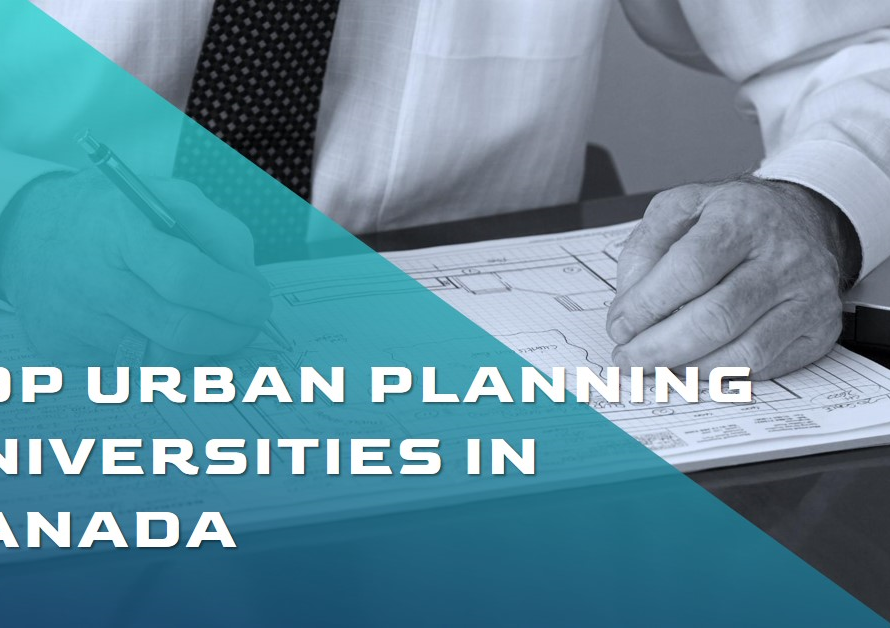
Table of Contents
- Introduction:
- Understanding Urban Planning:
- What Is an Urban Planning Degree?
- Core Curriculum and Coursework:
- Specializations and Electives:
- Skills Developed Through an Urban Planning Degree:
- Career Opportunities in Urban Planning:
- The Importance of Accreditation:
- Challenges and Rewards of an Urban Planning Career:
- The Future of Urban Planning:
- Conclusion: Making a Difference with an Urban Planning Degree
Introduction:
Urban planning is an essential field that shapes the cities and communities where we live, work, and play. If you’ve ever wondered who is responsible for the efficient design of city infrastructure, transportation systems, and public spaces, the answer lies within urban planners. These professionals ensure our cities grow sustainably and remain vibrant, functional places. But how does one become an urban planner? The journey typically starts with obtaining an urban planning degree. This blog post will explore everything you need to know about this degree, its importance, and the career opportunities it offers.
Understanding Urban Planning:
Urban planning is the art and science of designing and managing land use in urban environments. It involves the development and implementation of policies and plans that affect the physical, social, and economic aspects of urban areas. Urban planners work to create sustainable, livable, and efficient communities by addressing issues such as housing, transportation, and environmental protection.
In today’s rapidly growing and changing world, urban planners play a crucial role in shaping the future of cities. They consider various factors, including population growth, economic development, environmental sustainability, and social equity, to create comprehensive plans that guide the development and redevelopment of urban areas. This multidisciplinary approach ensures that cities remain dynamic and resilient in the face of challenges.
What Is an Urban Planning Degree?
An urban planning degree is an academic qualification that prepares individuals for a career in urban planning and development. This degree is offered at both undergraduate and graduate levels, with programs designed to provide students with the knowledge and skills necessary to address complex urban issues.
Undergraduate programs typically lead to a Bachelor of Arts (BA) or Bachelor of Science (BS) in Urban Planning. These programs usually span four years and cover a broad range of topics, including land use planning, urban design, transportation planning, and environmental sustainability. Graduate programs, which lead to a Master of Urban Planning (MUP) or similar degrees, delve deeper into specialized areas and often require two years of study.
Core Curriculum and Coursework:
The curriculum of an urban planning degree is diverse, reflecting the interdisciplinary nature of the field. Students can expect to take courses in urban theory, land use planning, environmental planning, and geographic information systems (GIS). Additionally, courses in public policy, economics, and sociology provide a well-rounded understanding of the various factors influencing urban development.
One key component of urban planning education is practical experience. Many programs include studio courses or internships that allow students to work on real-world projects, applying their knowledge and skills in a practical setting. These hands-on experiences are invaluable for developing problem-solving abilities and gaining insights into the challenges faced by urban planners.
Specializations and Electives:
Urban planning is a broad field with numerous areas of specialization. Students can tailor their education to match their interests and career goals by choosing electives and concentrations in specific areas. Common specializations include transportation planning, environmental planning, housing and community development, and urban design.
For instance, a student interested in sustainable development might focus on courses related to environmental planning and policy, renewable energy, and green infrastructure. Another student passionate about social equity might concentrate on community development, affordable housing, and public participation processes. These specializations allow students to gain expertise in specific areas and enhance their career prospects.
Skills Developed Through an Urban Planning Degree:
An urban planning degree equips students with a diverse set of skills essential for success in the field. Critical thinking and analytical skills are paramount, as urban planners must evaluate complex data, identify trends, and develop evidence-based solutions to urban issues. These skills are honed through coursework, research projects, and practical experiences.
Communication and collaboration are also crucial skills for urban planners. They must be able to articulate their ideas clearly and persuasively to diverse audiences, including government officials, community members, and developers. Teamwork is essential, as urban planners often work with professionals from various disciplines, such as architects, engineers, and environmental scientists, to achieve common goals.
Career Opportunities in Urban Planning:
Graduates with an urban planning degree have a wide range of career opportunities available to them. They can work in the public sector, private sector, or non-profit organizations. Common employers include local and regional government agencies, urban and regional planning firms, real estate developers, and environmental consulting firms.
In the public sector, urban planners may work for city or county planning departments, where they are involved in developing and implementing land use plans, zoning regulations, and transportation projects. In the private sector, they might work for consulting firms that provide planning services to municipalities, developers, and other clients. Non-profit organizations often hire urban planners to work on community development, affordable housing, and environmental conservation projects.


The Importance of Accreditation:
When choosing an urban planning degree program, accreditation is an important consideration. Accreditation ensures that the program meets certain standards of quality and rigor, providing assurance that graduates are well-prepared for professional practice. In the United States, the Planning Accreditation Board (PAB) accredits urban planning programs at both the undergraduate and graduate levels.
Accreditation is also important for professional certification. In many countries, urban planners must obtain certification or licensure to practice. In the United States, for example, the American Institute of Certified Planners (AICP) offers certification to planners who meet certain education and experience requirements and pass an exam. Graduating from an accredited program is often a prerequisite for certification.
Challenges and Rewards of an Urban Planning Career:
A career in urban planning can be both challenging and rewarding. Urban planners often work on complex projects that require balancing competing interests and navigating political, social, and economic constraints. They must stay informed about changing regulations, emerging technologies, and evolving public preferences.
Despite these challenges, many urban planners find their work highly rewarding. They have the opportunity to shape the physical and social fabric of communities, making a positive impact on the lives of residents. Whether it’s designing a new park, improving public transportation, or promoting sustainable development, urban planners play a vital role in creating better places for people to live.
The Future of Urban Planning:
The field of urban planning is continually evolving in response to new challenges and opportunities. Climate change, rapid urbanization, and technological advancements are some of the key factors shaping the future of urban planning. Planners must adapt to these changes by developing innovative solutions and embracing new tools and technologies.
For example, the increasing availability of big data and advanced analytical tools allows urban planners to make more informed decisions and develop more effective plans. Additionally, the growing emphasis on sustainability and resilience requires planners to integrate environmental considerations into all aspects of urban development. As cities continue to grow and change, the demand for skilled urban planners is expected to remain strong.
Conclusion: Making a Difference with an Urban Planning Degree
An urban planning degree is more than just an academic qualification; it’s a pathway to making a meaningful difference in the world. Urban planners play a crucial role in shaping the future of our cities and communities, addressing complex challenges and creating vibrant, sustainable places for people to live.
Whether you are drawn to the idea of designing efficient transportation systems, creating affordable housing solutions, or promoting environmental sustainability, an urban planning degree provides the knowledge and skills you need to succeed. With a strong foundation in theory, practical experience, and specialized expertise, graduates are well-equipped to embark on rewarding careers and contribute to the dynamic field of urban planning.


